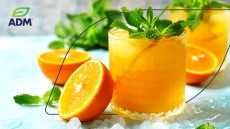ColorMaker goes natural
blends for use in natural food bakeries.
The company said in a statement that the natural color blends are light, heat and pH stable in typical bakery applications such as sweet breads, cupcakes, cookies and muffins.
Colormaker added that the color blends are completely soluble in sugar-based icings, unlike traditional natural colors which tend to separate or color unevenly.
The natural color blends produce yellow, red, orange, green - and perhaps most excitingly blue - icing colors and can be mixed to produce a range of shades and colors.
"Bakeries are requesting more and more natural ingredients to meet the growing demand for natural food products," said Stephen Lauro, general manager of colorMaker.
"With our new line of natural color blends to produce brightly colored icings, bakeries can achieve the entire visual spectrum of colors, which before now could only be achieved with artificial colors."
The natural color market has experienced strong growth over recent years thanks to the functional food trend and a shift away from synthetic colors as consumers begin to assume more and more that all E-numbers are unhealthy.
Coloring foodstuffs include fruit and vegetable juices, concentrates and dried, powdered extracts. They do not contain any carriers or additives, and may be listed as ingredients, rather than as food additives.
There are three main classes of color in foods: natural colors, browning colors, which are produced during cooking and processing, and additives.
The principal natural colors, most of which, in refined form, are used as additives, are the green pigment chlorophyll, the carotenoids, which give yellow to red colors, and the flavonoids, with their principal subclass the anthocyanins, which give flowers and fruits their red to blue colors.
Sources of anthocyanins include red grapes, elderberries, red cabbage, blood orange, the less familiar black chokeberry, and the sweet potato. Anthocyanins are highly dependent on acidity and lose their color in conditions of low acidity.






















